Eco-friendly Products to Help You Live Sustainably
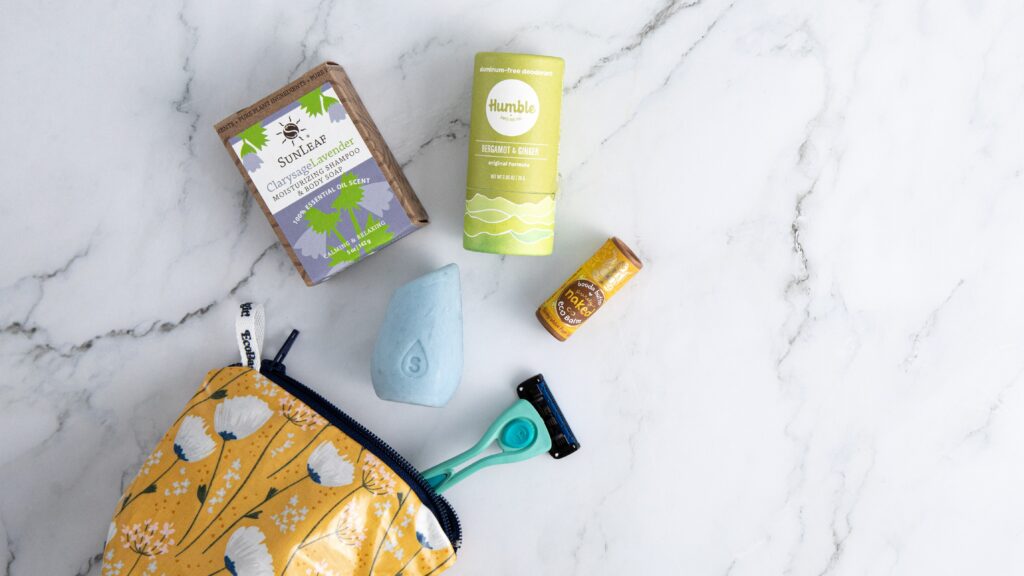
Earth Day is the perfect time to assess your eco-friendly habits. Whether you’re composting, aiming to drive less and walk and bike more, working to conserve water, or using less plastic, there are lots of small ways to live more sustainably. As the quote from chef and author Anne Marie Bonneau goes, “We don’t need a handful of people doing zero waste perfectly. We need millions of people doing it imperfectly.”
Here are eco-friendly changes that you can make with support of the co-op.
Look for Local.
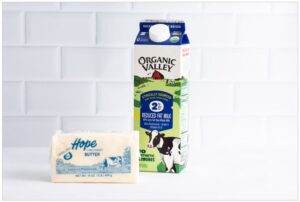
Reducing food miles helps reduce our carbon footprint, while supporting local farmers and strengthening our local food system. There are hundreds of local items at the co-op, in every aisle. Find locally grown mushrooms, local rotationally grazed meat, local grains and sauces — even local body care items! During the last fiscal year (July 2022 to June 2023), 74% of milk, butter, and eggs sold at Lakewinds were local, with a total of $18.8 million worth of local items sold.
Support Eco-Friendly Brands.
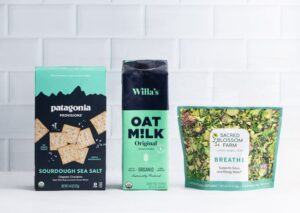
While all of the items at the co-op are chosen because they meet our high product standards, some go above and beyond with their eco-friendly impact. Here are a few that are exceptional.
- Perennial Pantry Kernza® perennial grain, flour, pancake and waffle mix, and Patagonia Kernza crackers.
Kernza is a perennial wheat, growing for 3 to 5 years before farmers plant a new crop. Its roots grow 10 feet down into the soil, helping sequester carbon and improve water quality. One study on a farm near Brainerd found that Kernza planted around conventionally grown corn and soybean fields reduced nitrate contamination in well water by 86 to 96 percent over a three-year period.
- Willa’s oat milk.
Local Willa’s is made from organic and locally grown whole grain oats. While many oat milk companies only use part of the oat, Willa’s uses the entire oat plant in production, so there’s no food waste.
- Sacred Blossom tea.
These local, loose-leaf tea blends are made from a mix of beneficial herbs and plants, most of which are sustainably grown and hand-harvested by farmer Tony DiMaggio.
Choose Plastic-Free Alternatives.
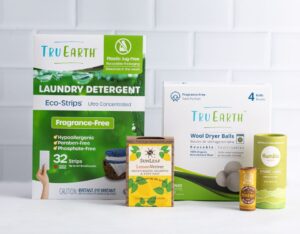
It’s typical to see many personal products and toiletries packaged in plastic containers. But a number of brands are working to offer eco-friendly alternatives. For example, Booda lip balm and some Humble deodorants come in compostable cardboard, Weleda has a deodorant in a glass bottle, and local SunLeaf and HiBar shampoo and conditioner bars are plastic-free. Bulldog razors are made from fast-growing, commercially compostable bamboo. There are also cleaning products that are plastic-free, such as Tru Earth laundry strips and dishwasher tablets, which you use by breaking off a tablet.
Bring Containers to the Bulk Aisle.
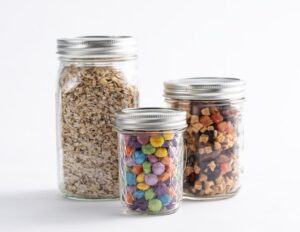
Planning on buying bulk? Keep a variety of glass jars in your car and grab the sizes you need as you’re heading into the co-op. Bring a large jar for your Doubting Thomas oats, a medium one for local wheatberries, and a small one for herbs. Weigh each empty jar first and note the weight (tare). Then fill the jar, place it on the scale, and enter the four-digit PLU and tare weight. Print off the sticker and you’re good to go. Packaging-free bulk items are usually a lower price than what comes prepackaged. Win-win!
Opt for Reusable Over Single Use.
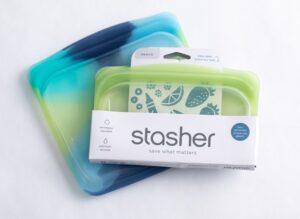
There are many reusable products at the co-op that minimize single-use waste. Examples to look for:
- Stasher bags can not only replace plastic baggies but are made with food-grade silicone and are safe for the oven (up to 425° F), freezer, microwave, and dishwasher.
- Swedish dish towels to use in lieu of paper towels for cleaning up spills, wiping down counters, and more. At the end of their life, they can be commercially composted.
- Reusable grocery bags and produce bags replace single-use bags when you’re shopping for produce and at checkout.
- Mesh tea ball strainers help you steep a lovely loose tea without the single-use tea bags.
- Shor beeswax wrappers cover food in bowls and containers, omitting the need for plastic wrap. (These can also be composted when they no longer work.)
Find Items Made from Recycled Plastic.
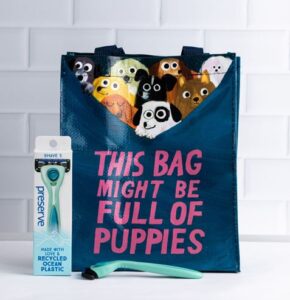
Recycling plastic is important—as long as there’s a market and purpose for that plastic once it’s used. That’s where these items come in.
- Preserve razors are made from recycled plastic yogurt cups.
- Blue Q shopping totes are made from 95% post-consumer recycled materials and are shipped using little to no plastic. Plus, one percent of all bag sales is donated to environmental initiatives.
- The Kitsch hair clips you find at the co-op are made from recycled plastic, while their hair ties are made from 100% recycled nylon.
Swap out eco-friendly products for single-use plastic when you’re able. When we all take little steps together, it makes a big difference for the planet.
See more ideas for eco-friendly living in our article about reducing kitchen waste, or watch a video about how to use the bulk aisle.
